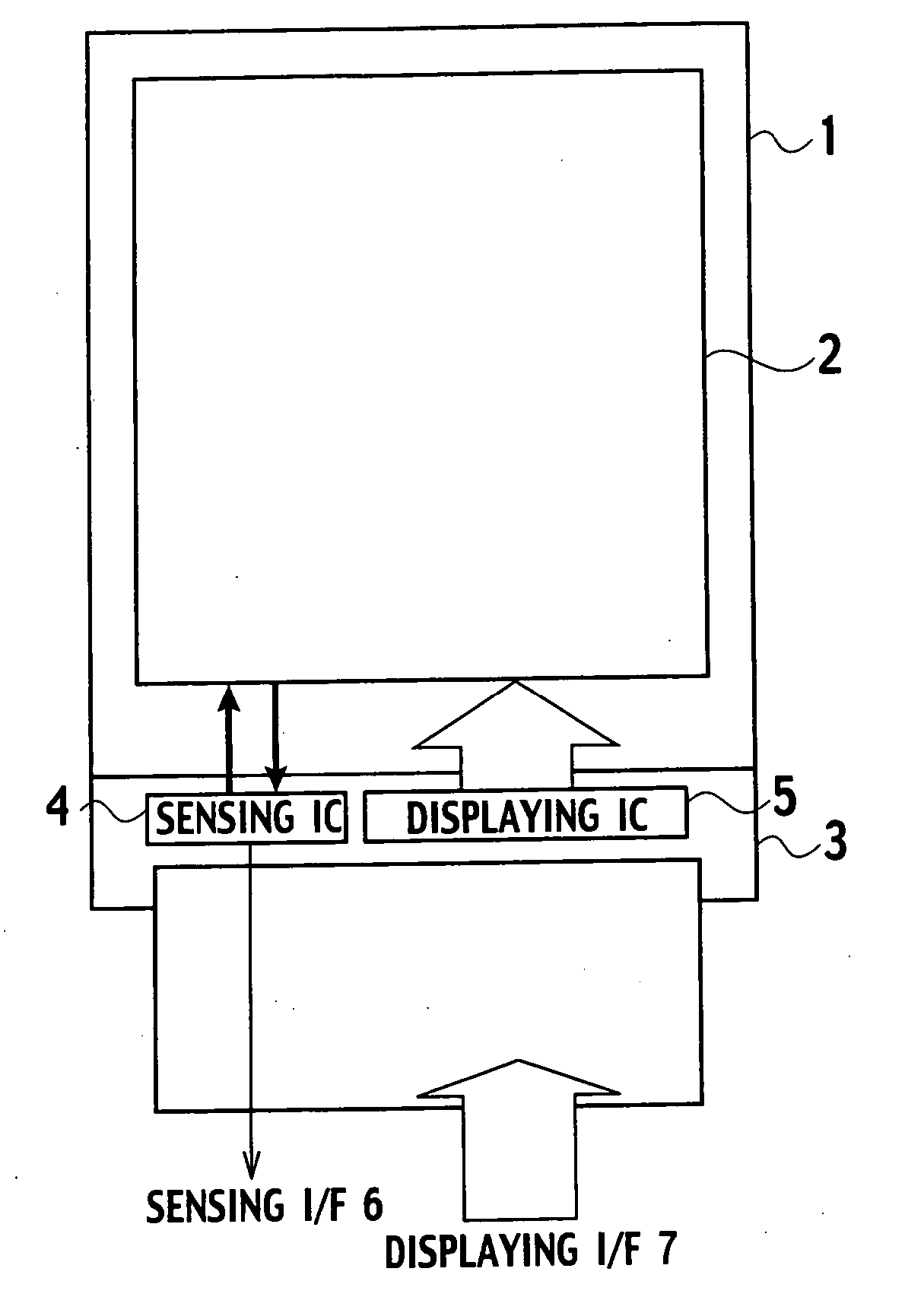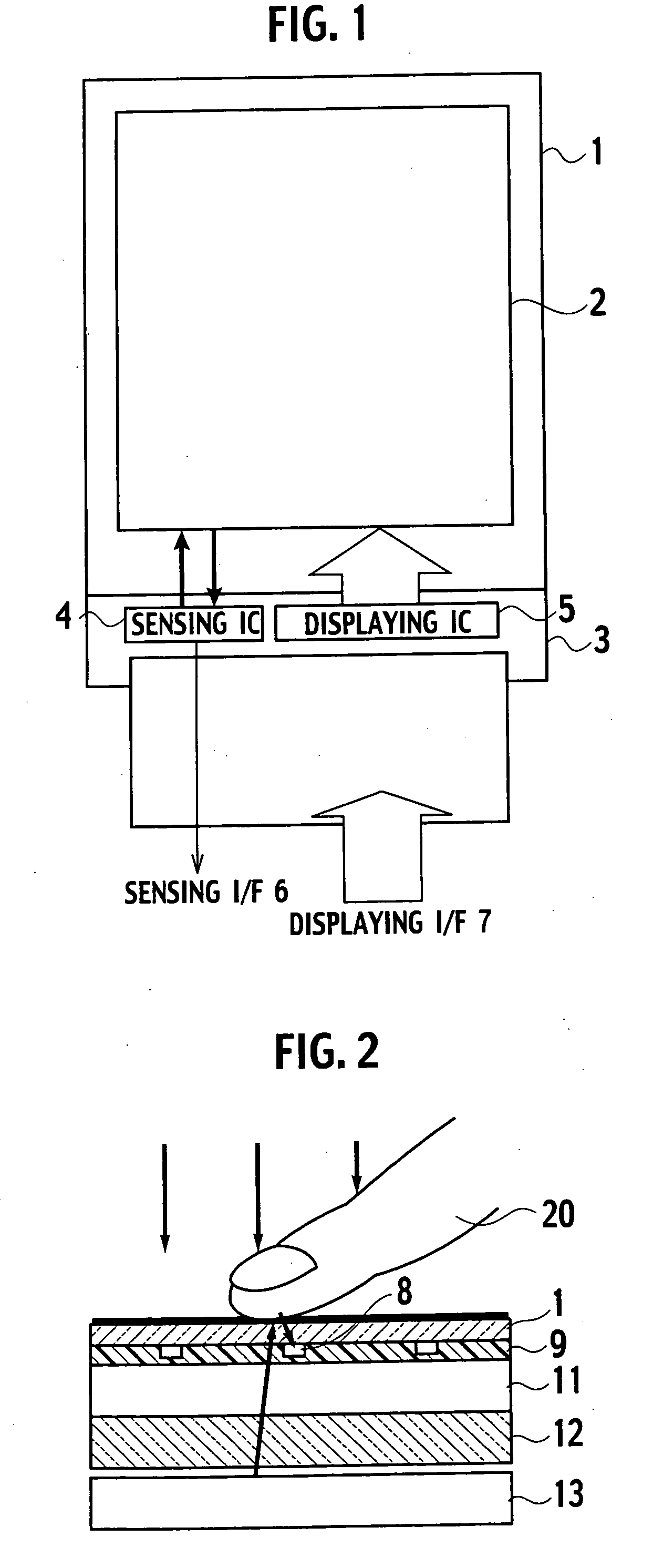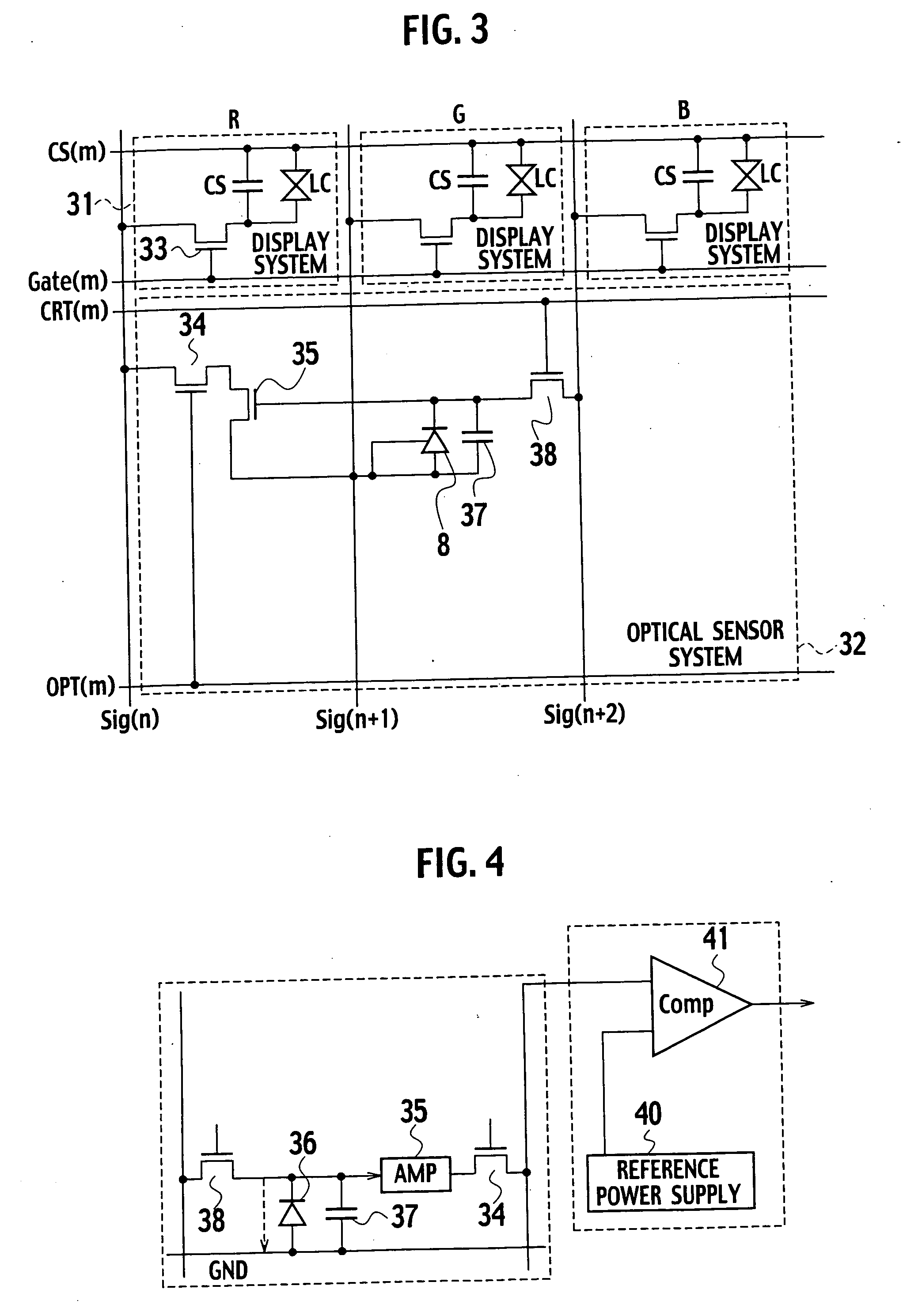Display device including function to input information from screen by light
a technology of a display device and a function, which is applied in the direction of user-computer interaction input/output, instruments, computing, etc., can solve the problems of inaccurate identification of the shadow of the object approaching the screen, the difficulty of determining whether or not the object has contacted the screen, and the accuracy of information input drops, so as to achieve accurate determination and enhance the effect of determination accuracy
- Summary
- Abstract
- Description
- Claims
- Application Information
AI Technical Summary
Benefits of technology
Problems solved by technology
Method used
Image
Examples
first embodiment
[0113]FIG. 1 is a plan view showing a configuration of a display device in this embodiment. The display device in this drawing includes a display unit 2 formed on an array substrate 1 made of glass, a flexible substrate 3, a sensing integrated circuit (IC) 4 and a displaying IC 5, both of which are formed on the flexible substrate 3, an interface (I / F) 6 for the sensing IC 4, and an interface 7 for the displaying IC.
[0114] In the display unit 2, plural signal lines and plural scan lines are wired so as to intersect each other, and pixels are provided on the respective intersections. The display unit 2 includes a display function to display an image based on a video signal transmitted from a host-side CPU through the displaying interface 7 and the displaying IC 5, a light input function to image an image of an external object approaching a screen, and a function to transmit the imaged image to a host through the sensing IC 4 and the sensing interface 6. The sensing IC 4 performs pro...
second embodiment
[0142] In this embodiment, only a configuration of the sensing IC is different from that in the first embodiment, and a basic configuration of the display device is similar to that in the first embodiment. Accordingly, only the sensing IC is described here. A duplicate description of other portions similar to those of the first embodiment is omitted.
[0143]FIG. 10 is a circuit block diagram showing a configuration of a data processing unit in the sensing IC of this embodiment. The data processing unit in this drawing includes a modulation circuit 81, an inter-frame difference processing circuit 82, a memory 83, an edge detection circuit 84, a contact determination circuit 85, and a coordinate calculation circuit 86. Note that the second embodiment is similar to the first embodiment in that the sensing IC includes the level shifter 61 and the DAC 64 as well as the data processing unit.
[0144] The modulation circuit 81 converts the binary image transmitted from the comparator 41 descr...
third embodiment
[0171] Also in this embodiment, only a configuration of the sensing IC is different from that in the first embodiment, and a basic configuration of the display device is similar to that in the first embodiment. Accordingly, only the sensing IC is described here, and a duplicate description of other portions similar to those of the first embodiment is omitted.
[0172] In the display device of this embodiment, as shown in FIG. 35, it is assumed that first to twelfth switches are displayed on the screen and that it is determined which of the switches a finger 20 has touched.
[0173]FIG. 36 is a circuit block diagram showing a configuration of a sensing IC 90 in this embodiment. The sensing IC 90 in this drawing includes a level shifter 91, a modulation circuit 92, a calibration circuit 93, a digital analog converter (DAC) 94, a counting circuit 95, an inter-frame difference processing circuit 96, an edge detection circuit 97, a contact probability calculation circuit 98, and a random acc...
PUM
 Login to View More
Login to View More Abstract
Description
Claims
Application Information
 Login to View More
Login to View More - R&D
- Intellectual Property
- Life Sciences
- Materials
- Tech Scout
- Unparalleled Data Quality
- Higher Quality Content
- 60% Fewer Hallucinations
Browse by: Latest US Patents, China's latest patents, Technical Efficacy Thesaurus, Application Domain, Technology Topic, Popular Technical Reports.
© 2025 PatSnap. All rights reserved.Legal|Privacy policy|Modern Slavery Act Transparency Statement|Sitemap|About US| Contact US: help@patsnap.com



